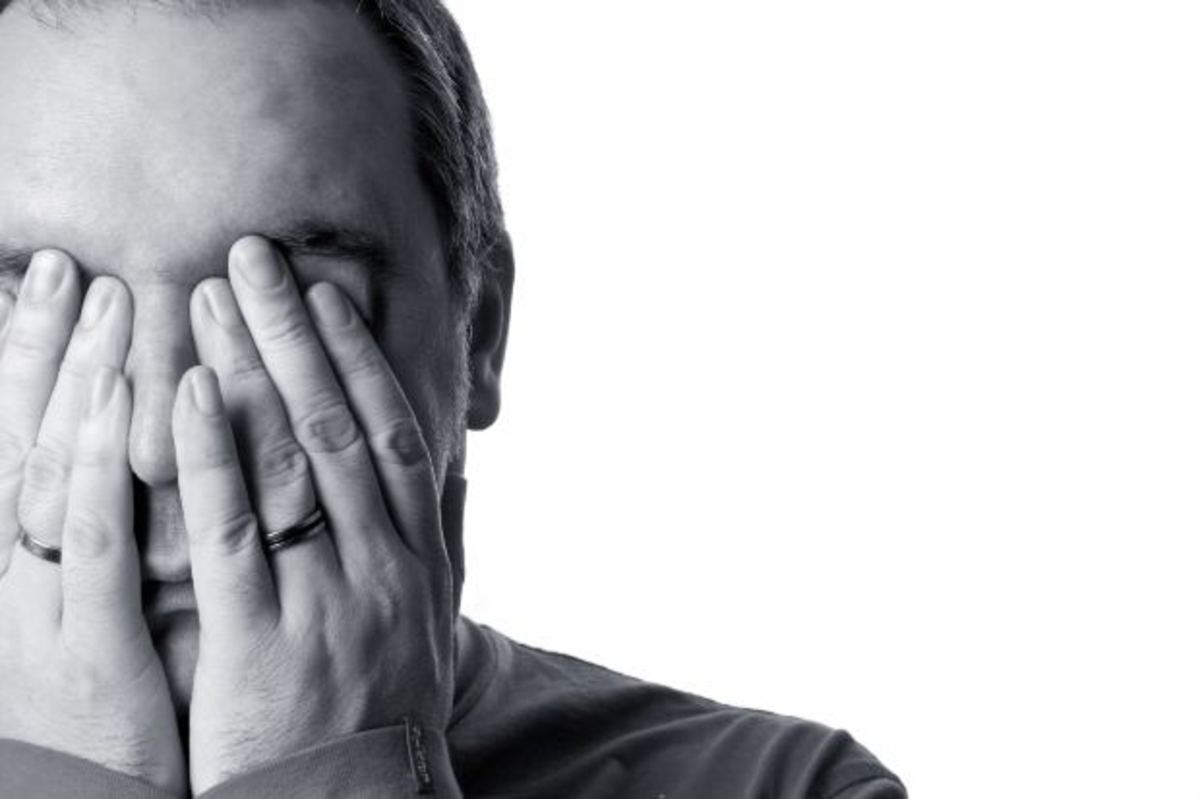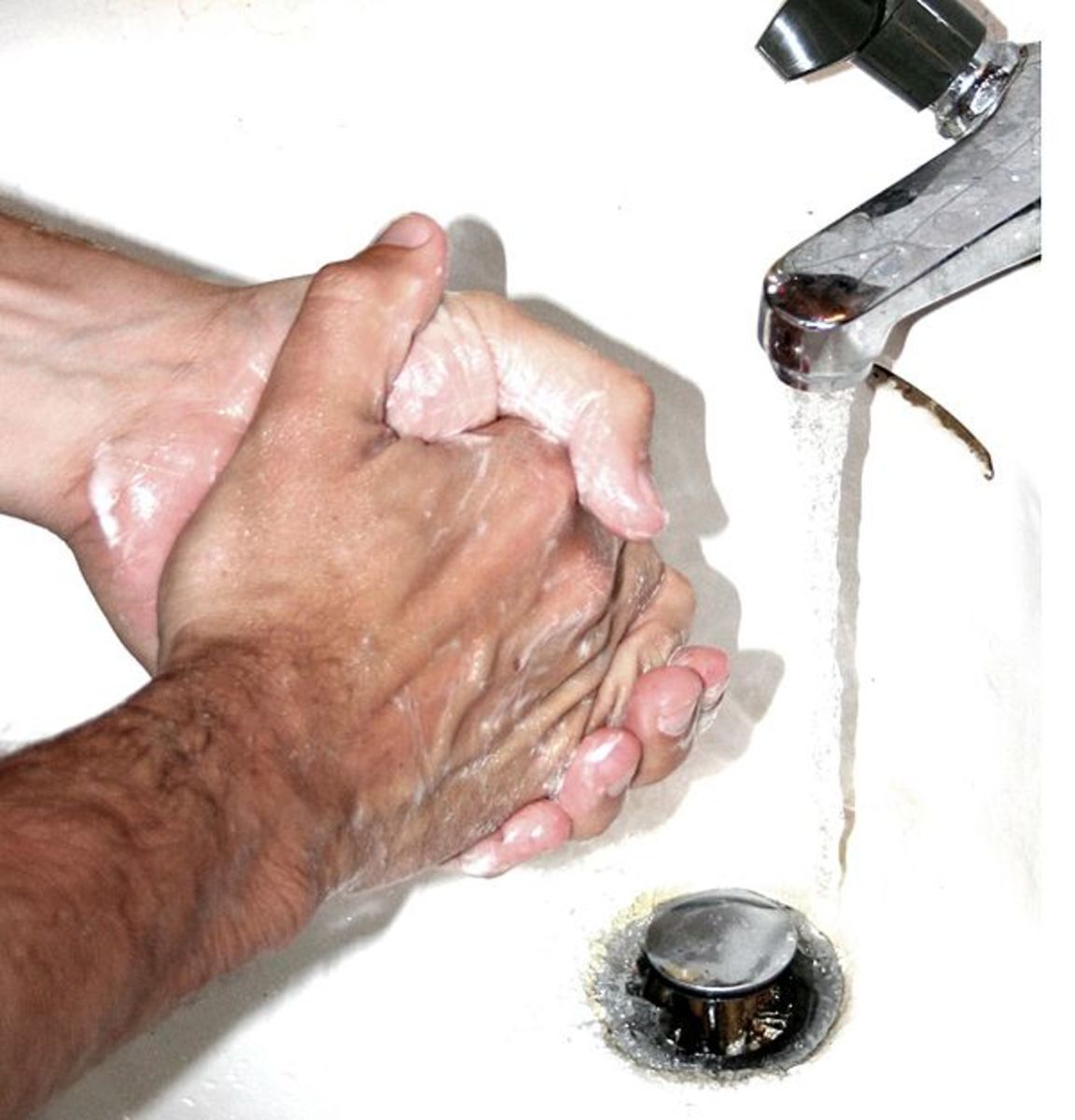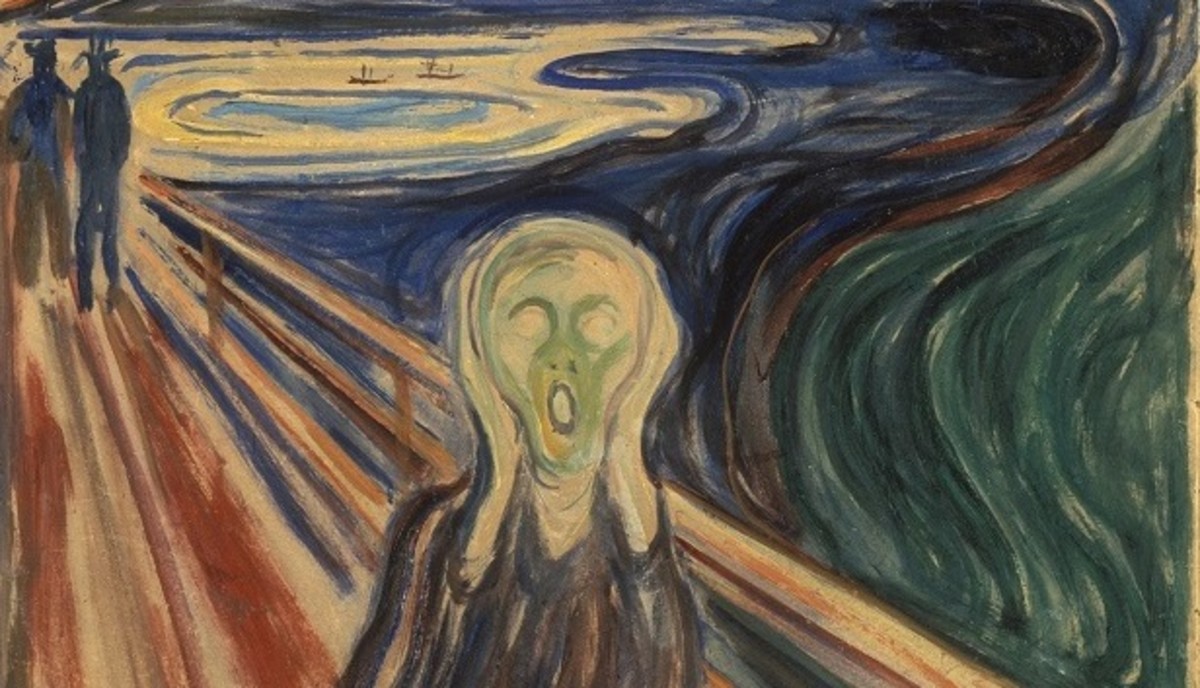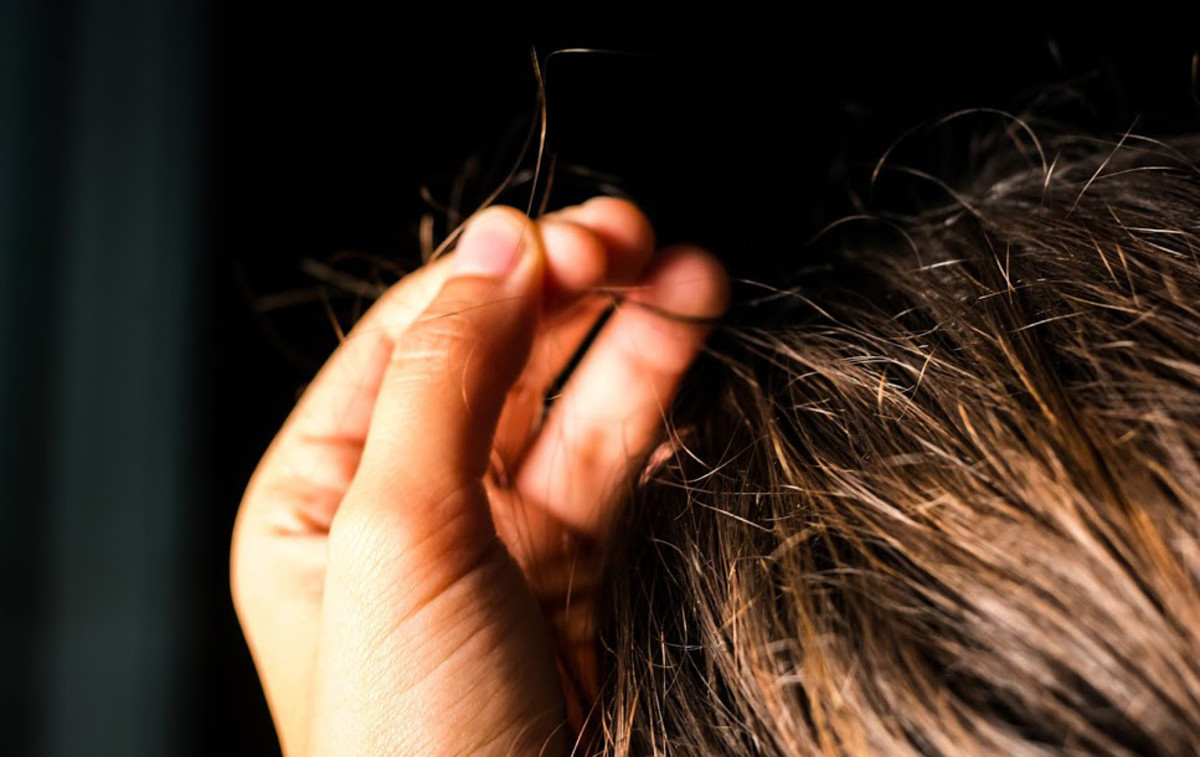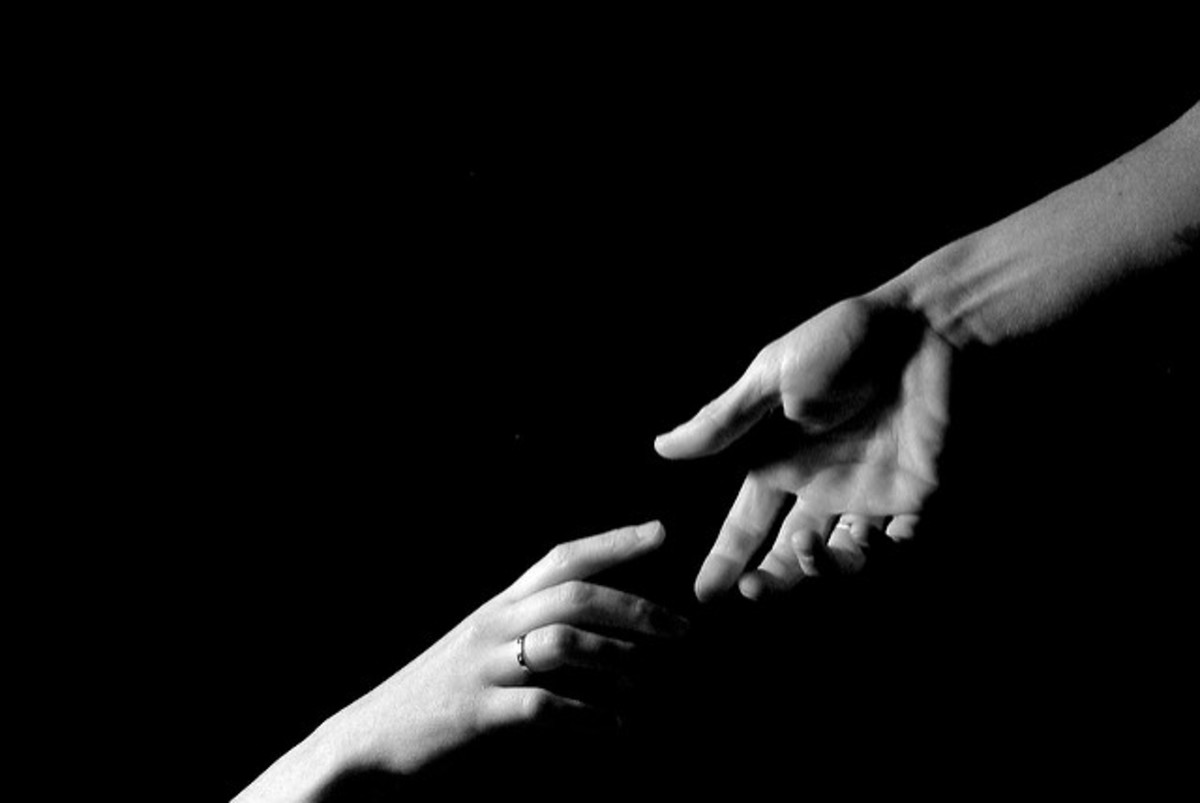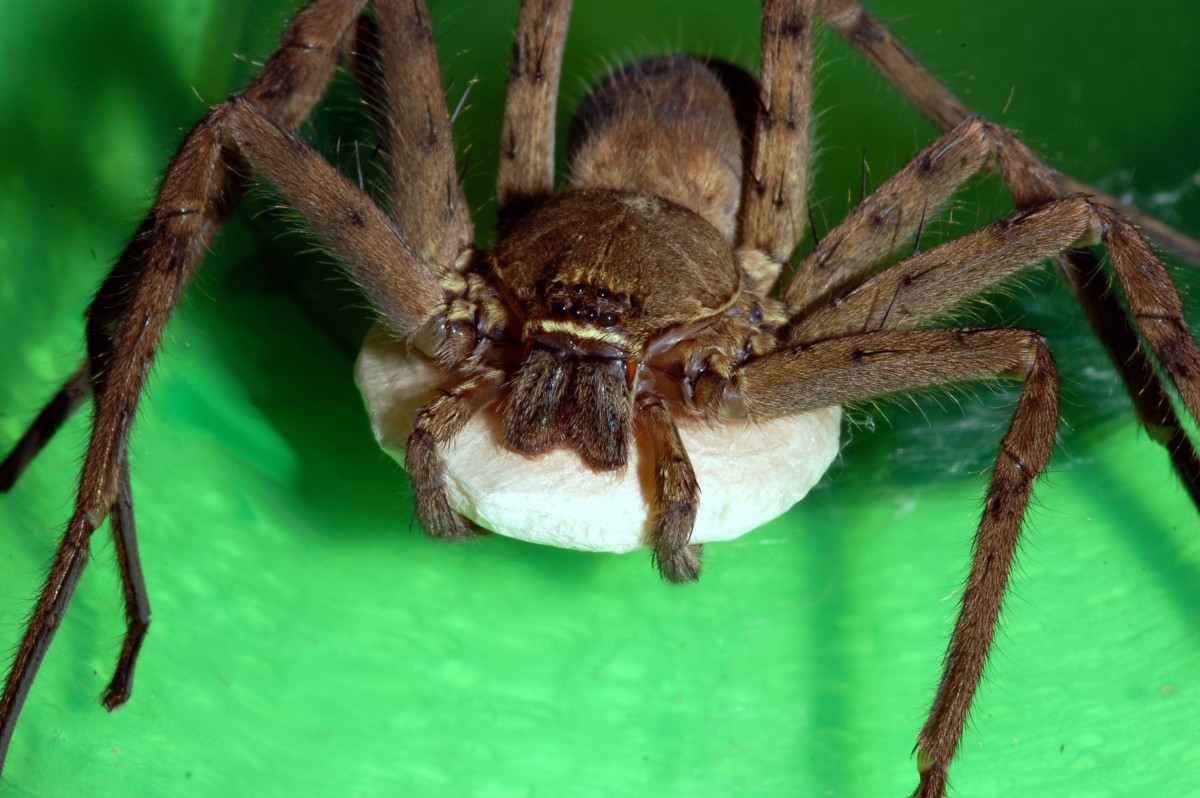- HubPages»
- Health»
- Mental Health»
- Anxiety Disorders
Obsessive Compulsive Disorder : Causes Consequences and Treatment
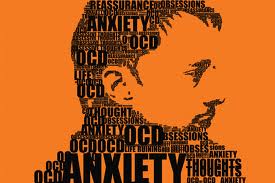
What is OCD?
The obsessive compulsive disorder (also known as OCD), is an anxiety disorder characterized by obsessions and compulsions that causes repeated unwanted thoughts.
It is a disorder that can occur in both childhood and adulthood, although the peak time is between 15 and 25 years. Affects approximately 2-2.5% of the general population means that out of 100 people, 2 or 3 will develop the disorder in their lifetime.
It is a chronic illness, although with alternating phases of improvement and deterioration, can cause problems in relationships, or in work, school etc.
The person often feels compelled to act or think in a way symptomatic and therefore seeks to oppose and resist. Despite trying to fight and to hide his actions or his thoughts, this effort does not help at all.
The cause of obsessive compulsive disorder is not known yet. The most common theory for the cause is lack of a brain chemical known as serotonin.
Symptoms of OCD
The central symptom of OCD is the presence of obsessions and compulsions which interfere with the activities of daily life. The disorder is recognized as such only if the presence of obsessions and compulsions leads to a distress, impairs the normal social and occupational life of the individual.
Main symptoms of the disorder are:
• repetition, frequency and persistence of obsessive activity;
• the feeling that this activity is required and is compulsive.
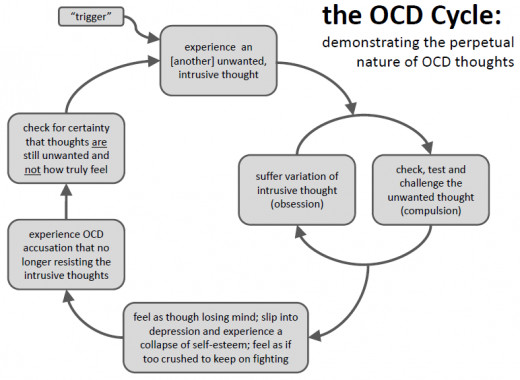
The obsessions
The obsessions are ideas, thoughts, impulses, or images that arise suddenly in the mind and that are perceived as intrusive, annoying and meaningless.Examples of Obsessions are thoughts like
"I could be infected with the HIV virus if I touch the bathroom door" or
"I must not think of the name of the people I love in the hospital, otherwise they may get sick"
"If I do not check that all files are closed, something bad will happen"
"I could say something bad without realizing it."
These are recurrent intrusive thoughts and / or persistent (i.e these thoughts occupy the mind for a long time).
The person with OCD live with pain and discomfort due to the presence of these thoughts.
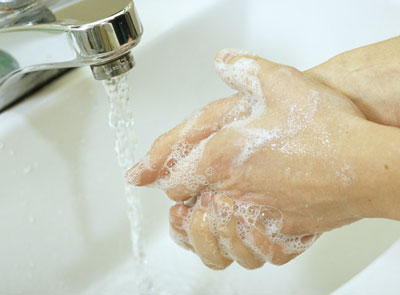
The Compulsions
The second category of symptoms are compulsions. They consist of mental and behavioral actions that occur in response to obsessions and which represent an attempt for a solution, usually followed by a sense of relief from the discomfort caused by the obsessions, even if it is only a temporary relief. For example, washing your hands with antiseptic over and over as a response to obsession "my hands are full of germs!!"
Those who have this disorder usually hides their concerns because they think that their behavior and thoughts are absurd and disturbing and they are ashamed. Expressions of OCD patients are: "I do not understand why I act this way," "Maybe I'm going crazy!" Or "If people knew that I have these thoughts, they'll take me for a fool."
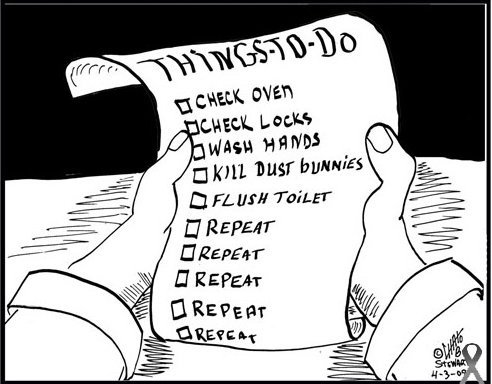
There are several symptoms for this disorder
Some are tormented by the insistent concern that they or a family member can get sick coming into contact with some invisible germ or toxic substance. These "contaminants" include substances such as urine, blood, sweat, soaps, solvents etc. This type of obsession result in continuous attempt to neutralize the contamination. Example: washing hands, clothes or other personal items repeatedly.
Some are manifested by the impulse to accumulate and store items, even unwanted products (e.g newspapers, empty cigarette packets, empty bottles), because "one day or the other it might be useful".
Some simply cannot withstand asymmetry. Books, papers, pens, towels, videotapes, clothes, dishes, must be perfectly aligned, symmetrical and ordered according to a specific logic (size, color etc). When the patient encounters an imbalance or disorder he spends many hours to tidy up these objects.
The consequences
OCD can have serious consequences because it usually affects children, threatens the course of study, the ability to work, the normal life and relationship. For example, people with OCD often takes much longer to graduate, sometimes even give up, at work often have to settle for jobs of low responsibility. The disorder, therefore, greatly reduces the ability of existential realization, reflecting negatively on the quality and duration of friendships and affection. It not only affects the patient but also family members. They may have to care for the patient all day long.
Care and treatment
Medicines and cognitive-behavioral therapy are more effective treatments.
Medicines include selective serotonin re-uptake inhibitors (SSRI) and other anti- depressant drugs.
The Cognitive-Behavioral Psychotherapy is currently considered one of the most reliable and effective models for the understanding and treatment of psycho pathological disorders.It is also called exposure and response prevention. For example, if you were disturbed with the concern of getting germs from the stuff you touch, you will be made to touch the stuff until you are relaxed and the fear of getting germs gone. These treatments can make your symptoms less severe. But you may still have some mild symptoms after you begin treatment.
Movies related to OCD
Documentary on OCD
OCD: The War Inside is a wonderful documentary on OCD and how to overcome it. A must watch film.



